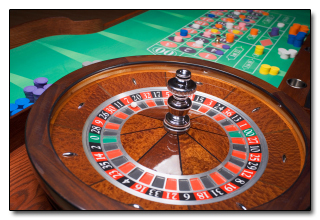5 Logical Fallacies That Make You Wrong More Than You Think

The Internet has introduced a golden age of ill-informed arguments. You can't post a video of an adorable kitten without a raging debate about pet issues spawning in the comment section. These days, everyone is a pundit.
But with all those different perspectives on important issues flying around, you'd think we'd be getting smarter and more informed. Unfortunately, the very wiring of our brains ensures that all these lively debates only make us dumber and more narrow-minded. For instance ...
We're Not Programmed to Seek "Truth," We're Programmed to "Win"

Think about the last time you ran into a coworker or family member spouting some easily disproven conspiracy theory -- somebody who still thinks Obama's birth certificate is a fake or that Dick Cheney arranged 9/11 to cover up his theft of $2.3 trillion from the government. When they were shown proof that their conspiracy theory was wrong, did they back down? Did they get this look of realization on their face and say, "Wow ... if this is untrue, then maybe the other 'facts' upon which I've based my fringe beliefs also aren't true. Thank you, kind stranger, for helping me rethink my entire political philosophy!"
That has literally never happened in the history of human conversation. Whether it's a politician whose point has been refuted or a conspiracy theorist who has been definitively proven insane, they will immediately shift to the next talking point or conspiracy theory that backs up their side, not even skipping a beat. They keep fighting to defend their position even after it is factually shown to be untrue. But what's really weird is that process -- of sticking to your guns even after you've been proven definitively wrong -- is apparently the entire reason humans invented arguing.

"OK, so Dick Cheney doesn't have a third arm. He might still be capable of spitting acid."
The Science:
It's called the argumentative theory of reasoning, and it says that humans didn't learn to ask questions and offer answers in order to find universal truths. We did it as a way to gain authority over others. That's right -- they think that reason itself evolved to help us bully people into getting what we want. Here's how a proponent puts it:
"'Reasoning doesn't have this function of helping us to get better beliefs and make better decisions,' said Hugo Mercier, who is a co-author of the journal article, with Dan Sperber. 'It was a purely social phenomenon. It evolved to help us convince others and to be careful when others try to convince us.' Truth and accuracy were beside the point."
And as evidence, the researchers point out that after thousands of years of humans sitting around campfires and arguing about issues, these glaring flaws in our logic still exist. Why hasn't evolution weeded them out? The answer, they say, is that these cognitive flaws are adaptations to a system that's working perfectly fine, thank you. Our evolutionary compulsion is to triumph, even if it means being totally, illogically, proudly wrong.

"Check it out, you guys, Carl has something called 'Loose Change' loaded up on his iPhone."
Yes, kids, being a dick works.
So During Your Next Argument, Remember ...
You do this, too. If you're a human being, you're from a long line of people who got to the winner's circle again and again by ignoring facts in favor of advancing your side. So, the next time you find yourself desperately Googling for some factual example that proves your argument is right, and failing to find even one, stop. See if you can put the brakes on and actually say, out loud, "Wait a second. If the things I'm saying in order to bolster my argument are consistently wrong, then maybe my argument is also wrong."

"But if President Obama isn't a serial killer, what does my life mean?"
It's going to be harder than you think. Back when evolution was still sculpting your ancestor's brains, admitting you were wrong to the person you were debating got you bred out of existence. These days, being able to admit you're wrong is the greatest skill you can develop if you want to stay married.
Our Brains Don't Understand Probability

Do you know a guy who keeps a loaded shotgun under his bed? You know, in case a gang of European terrorists storm into his house and try to kidnap his family?
If you throw a bunch of statistics at him about how unlikely that is (for example, that he lives in a low-crime suburb in Wisconsin where there's only been one murder in the last 40 years, that he's statistically more likely to accidentally do something stupid than ward off a criminal and that more people were struck by lightning last year than successfully shot bad guys in the middle of committing crimes), it won't change his mind. Instead, he'll rebut you by citing a news story or an anecdote about a guy who successfully fended off a Die Hard bad guy thanks to his trusty 12-gauge. For him, that single, vivid example completely overrides all talk of statistics or probability.

Also, zombies.
Now take it into the realm of politics. The U.S. has spent $1.3 trillion on the war on terror so far. That was in reaction to about 14,000 total deaths from international terrorism from 1975 to 2003. That's more than $90 million spent for each person killed.
If you point out that this money would have been better spent preventing industrial accidents (which kill twice as many people per year than died in the World Trade Center) or, even better, curing cancer (the equivalent of about 200 WTC attacks each year), you'll be told, "Say that to the 9/11 victims, hippie!"

"Why do you hate eagles?"
The Science:
It's called neglect of probability. Our brains are great for doing a lot of things. Calculating probability is not one of them. That flaw colors every argument you've ever had, from the tax code down to that time your friend totally cheated you in a coin-flip.

This game exists because your brain is bad at math.
In this experiment involving electrocuting subjects (presumably conducted by Dr. Peter Venkman) scientists found people were willing to pay up to 20 dollars to avoid a 99 percent chance of a painful electric shock. Seems reasonable enough. But the same subjects would also be willing to pay up to seven dollars to avoid a tiny 1 percent chance of the same shock. It turned out that the subjects had only the vaguest concept of what 99 percent or 1 percent even means. All they could think about was the shock.
It's no surprise that we're bad at this, since the whole concept of measuring probability is a recent invention. Early man didn't have any concept of what percentage of bear encounters ended in being eaten. He only knew that he didn't want to be eaten. Our brains are not meant to instinctively understand any equation more complex than this:
Bear = Run Away

We're pretty sure there's supposed to be a coefficient of pant-soiling in there somewhere.
That worked fine for a hunter-gatherer trying to avoid being devoured by a bear like his father was. Unfortunately, running a government or an economy is a little more complicated, and we're still stuck in "Bear = Run Away" mode.
As experts point out, when there is strong emotion tied to the unlikely event, our ability to continue to see it as unlikely goes out the window. Thus, any statement of "It's very unlikely your child will be eaten by a bear, these bear traps in the yard are unnecessary and keep injuring the neighborhood kids" will always be answered with, "Say that when it's your child being eaten!"
So During Your Next Argument, Remember ...
Again, everybody does it. The only difference is which issue is so charged for us that we're willing to throw probability out the window.

"Math can blow me, I know that gardener is out to steal my babies."
Look, we realize not everyone is going to stop shouting at each other at protests, sit down and go over the numbers. But maybe take a deep breath and think twice before the next time you tell someone: "We'll see how you feel when it happens to you!"
We Think Everyone's Out to Get Us

If you're smart and savvy, you know not to trust anyone. This is why we can excuse ourselves for using shady or flat-out dishonest tactics to win an argument. We're sure the other guy is doing much, much worse.

"I will yield that the sky is blue, if you acknowledge that the moon landing was engineered by an unfrozen Walt Disney."
The world is so full of hidden agendas and stupid ideologies that we have to do whatever we can to keep up. And "whatever we can" is often code for lying.
The Science:
Think about all the people you've disagreed with this month. How many of them do you think were being intentionally dishonest? Experts say you're almost definitely overshooting the truth. It's called the trust gap, and scientist see it crop up every time one human is asked to estimate how trustworthy another one is. In one study, subjects were asked to rate the likelihood that strangers would share pretend winnings with them. The subjects figured about half were trustworthy enough to share. When it came time to actually share, about 80 percent came through. The subjects thought the world was almost twice as corrupt as it actually is.

"Most of the people in this calculus class would cut my throat for a value meal."
The problem, as another study found, is that when you assume someone is lying, you rarely find out that you're wrong. You just walk away congratulating yourself on being able to sniff out an ambush from a mile away.

"Why would he flee the country? He loves surprise parties, poker and judging blow job contests."
We start assuming people have ulterior motives and hidden agendas as early as age 7 and from that point on, we never have to lose another argument for the rest of our lives. After all, if we assume the person we're arguing with is lying, the only thing they can prove to us is that they're a really good liar. This is how racism, sexism and any other sort of discrimination work. Once someone's made-up their mind that color is the culprit, convincing them otherwise is going to be close to impossible, no matter how ridiculous the scenario.

"I can't buy anymore white cars from you, Sneaky Pete. They keep blowing up. What other colors do you have in this model?"
This is also where you get claims like, "Those conservatives don't really think taxes are too high, they secretly hate poor people!" or "Those liberals don't really think the poor need assistance, they're secretly communists!" It's impossible to learn anything from a conversation with someone who you think is lying to you. The more arguments you get into with those lying extremists from the other side of the aisle, the more you learn about how they lie, the faster your brain turns off after they start talking.
So During Your Next Argument, Remember ...
Do you support the Occupy Wall Street movement? If so, do you find it frustrating when opponents claim the protesters have a hidden agenda and are just tools of the communists?
Do you support the Tea Party? Do you find it frustrating when opponents dismiss the movement as a bunch of racists?
No matter what side you're on, you've played that game, and all it does is give you an excuse to ignore everything the other person says. You're dismissing their points as lies, they're doing the same to you, so why are you even having the conversation? Because you like making everyone else at the dinner table feel tense and awkward?
Either admit that maybe this person honestly thinks what they're saying is true, or just talk about sports.

"I always found lacrosse a little too socialist."
We're Hard-Wired to Have a Double Standard

Here's a good way to ruin your afternoon. Go on the Internet and find any discussion thread that brings up overweight people (like this or this one). Stand back and watch as a crowd absolutely rants about how incredibly easy it is to lose weight, and how incredibly lazy you have to be to get fat. The conclusion will be that being fat is literally a moral failing and the sign of a bad, disgusting human being. It's to the point of actual anger and violence directed toward the overweight in real life -- the fat are one of the last groups people can openly hate.

In at least four states, we can legally hunt this man.
But now take any of those people and try using the same logic with their weaknesses:
"You're struggling to get by on your income? I can't imagine how lazy a person would have to be to not be wealthy. Just go out there and make money! Duh!"
"You don't have a girlfriend? I can't imagine how much of an antisocial dick you have to be to not get a beautiful woman to love you. How hard is it to get off your ass and be a dynamic, sexy, personable human being?"

"Seriously dude, just stop having a micropenis."
"You drink alcohol? Or smoke cigarettes? Or smoke pot? Why don't you try not doing those things?"
"You suffer from depression or anxiety? Uh, have you tried not?"
Now watch as they rattle off ten thousand extenuating circumstances for their embarrassing problem (the economy is bad, women are bitches, I have an addiction) while completely rejecting all of the similar causes of obesity.

"My compulsive, life-shortening habit is completely different from overeating. Namely, it's much sexier."
The Science:
It's called the fundamental attribution error.
It's a universal thought process that says when other people screw up, it's because they're stupid or evil. But when we screw up, it's totally circumstantial. Like if you notice a coworker showing up to work high on mescaline, it's because he's an out-of-control peyote hound. But if you show up at work high on mescaline, it's because you had a flat tire and you needed the distraction.
The process feels so obvious when explained -- we simply lack information about the context in which the other person screwed up, and so we fill it in with our own. If we've never been fat, then we assume the fat guy feels the exact same level of hunger as we do, that his metabolism is the same, that his upbringing is the same, that the spare time and energy he can devote to exercise is the same as ours. We think that both of us faced the exact same fork in the road and only one of us chose to eat churros.

About 40 of these a week for two years are all that separate you from that guy who had to be airlifted out of his living room.
The reality is, of course, that you were on completely different roads. The assumption that everyone's circumstances are identical is so plainly wrong as to be borderline insane, but everyone does it. Pundits and politicians alike mock the unemployed as lazy, even though their own data shows that for every five unemployed people, there is only one open job. "I don't understand, can't you all just become radio talk show hosts like me?"
So During Your Next Argument, Remember ...
Forget about talking politics with your crazy shop teacher for a second. If you're consistently doing this when arguing with your significant other, that's a good sign that the relationship is dying. Listen for it -- when you forgot to do the dishes, it was because you had a thousand other things on your mind. When she forgot, it's because she doesn't care. If you find yourself automatically dismissing your partner's explanations as "excuses," you've gone to a bad place from which most relationships do not return.

"You didn't take out the trash this morning. Is it because you don't love me anymore?"
Facts Don't Change Our Minds

Here's how things would work in a perfect world: You and your friend are on opposing sides of an issue. After reaching an impasse, you pull out a piece of information so precise, so compelling, so perfect, that your buddy does a 180 and completely changes his mind. You high five and skip off into the distance.
And this probably has happened ... as long as it was a subject that neither of you particularly cared about. But if it was some emotionally charged issue, like abortion? God help you.

Covering your mouth is the first step in any successful dialogue.
The Science:
Let's go back to the beginning for a moment, and the theory that people figured out how to build arguments as a form of verbal bullying rather than a method of spreading correct information. That means that there are actually two reasons somebody might be arguing with you: because they actually want to get you to think the right thing, and because they're trying to establish dominance over you to lower your status in the tribe (or office or forum) and elevate their own. That means there's a pretty severe cost to being on the wrong side of an issue completely separate from the issue itself.
Now think about the way people treat the two sides of a debate like teams. Not just political parties; remember how one side of the Leno vs. Conan debate referred to themselves as "Team Coco," or how Twilight fans refer to their factions as "Team Edward" vs. "Team Jacob."

Team Leatherface?
Then note how may debates involve people jumping into an issue in which they have nothing at stake (only a fraction of the millions of the "Team Coco" people supporting Conan on the Internet actually watch his show), just so they have the chance to join a team.
Now think of how much it would hurt them to have to change teams.

"I looked like a fool on the Internet. This is my only path now."
That is why confirmation bias exists. We read a news article that supports what we believe, and we add it to the "I'm right about this" column. News articles that contradict what we believe are dismissed. We make up a reason -- maybe the source is part of the conspiracy from the other side or whatever it takes to make sure the "I'm wrong about this" column remains empty.
Researchers have done experiments where they hooked up people's brains to scanners and then made them read a story pointing out something stupid their favorite candidate said. The logical parts of the brain stayed quiet, while the emotional parts of the brain lit up. Their brains were weighing the story, not based on what it logically meant for their position, but on the emotional/social consequences of that position being wrong.

"You've pushed me past the breaking point, Snopes.com!"
Then, once the brain had decided that this news story being right would mean pain and humiliation for the reader, it told the logical part, "Figure out a way to use your 'logic' stuff to make this pain go away." The next day, you probably heard those test subjects at the coffee shop going on and on about how biased the press is against their guy.
So During Your Next Argument, Remember ...
You won't remember this. You're hard-wired to remain entrenched, and the Internet makes it worse because your political beliefs are pasted all over Facebook and wherever else you post your opinions. Backing down means going back on all that. It means letting down your team. Every inch of your psychology will fight it.

Technology gives us the power to be wrong forever.
The scary part? The same logical fallacy that prevents that crazy guy who keeps predicting the end of the world over and over from admitting maybe he was full of shit is the same fallacy that drives partisan politics and, therefore, government policy. Sleep tight, voters! Evolution is working against us.
For more things that you're incorrect about, check out 7 Basic Things You Won't Believe You're All Doing Wrong and The 6 (Wrong) Questions Men Love to Ask About Women.